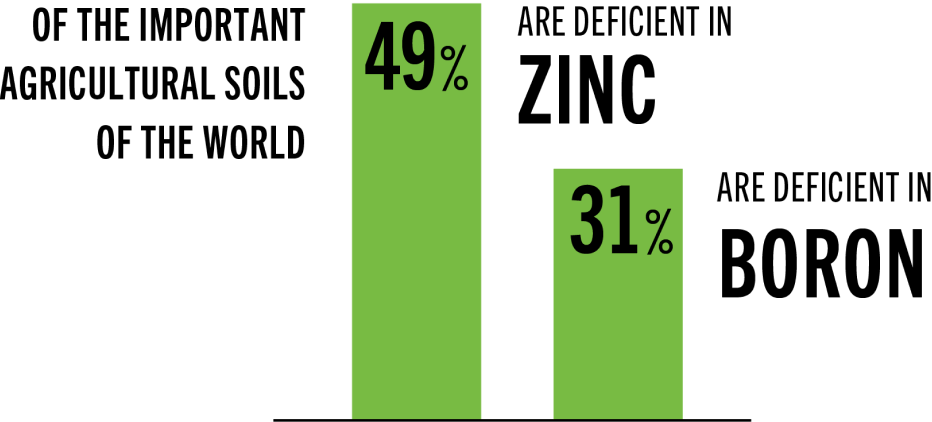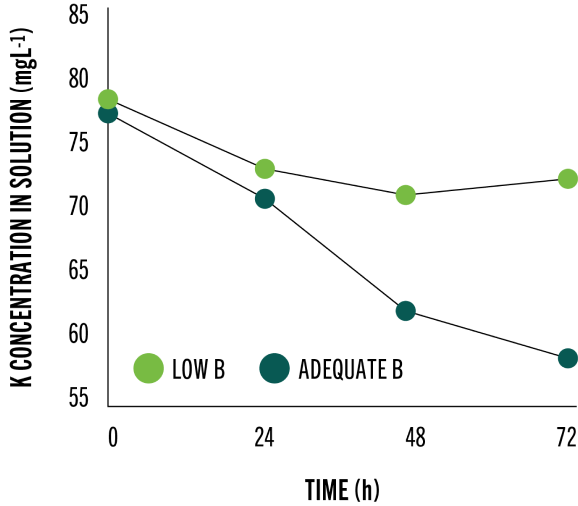Corn, soybeans, alfalfa, cotton, and other common crops have a significant need for boron (B) — yet B is the second-most deficient micronutrient in the world’s important agricultural soils.

It’s how Plants Grow, Grow, Grow
Plant growth From seedling to harvest, your plant’s health depends upon B throughout all of its key growth periods.
Stress tolerance B is essential for cell wall formation, a key component in stress tolerance that ultimately impacts how efficiently a plant uses water, responds to weather conditions, and more.
Potassium uptake Insufficient B reduces K uptake, a beneficial macronutrient that helps improve the physical quality of plants and their reproductive structures.


… And Plants Need B All Season Long
Because B is mobile in soil, it is susceptible to leaching. However, once within the plant, most field crops (including corn, soybeans, wheat, canola, and alfalfa) cannot remobilize boron through the phloem, from old tissues to new tissues.
These crops are very sensitive to even short-term deficiencies, which can occur rapidly. That’s why it’s so important for B to be continuously available for uptake by the roots, especially prior to flowering, as it is vital to the reproduction process.
Adequate availability during reproductive development is responsible for improved seed set and grain development. That means increased quality and yield for you.